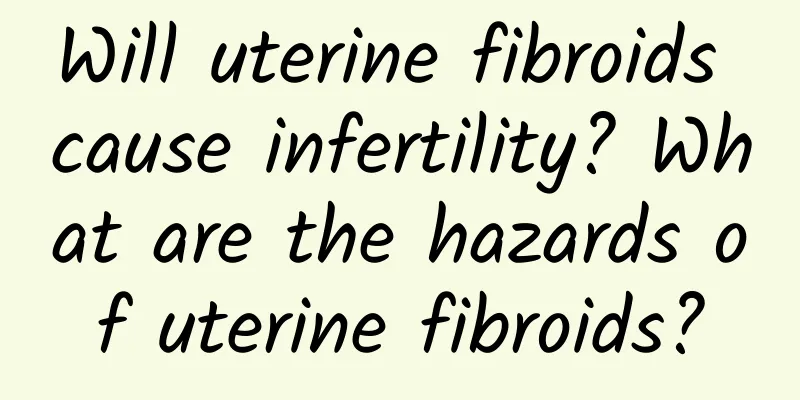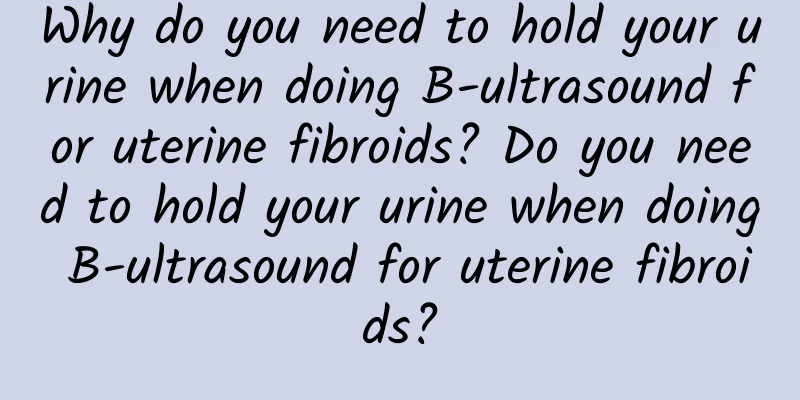Characteristics of submucosal uterine fibroids

|
Uterine fibroids, also known as uterine leiomyoma, are the most common benign tumors of the female genitalia. According to the relationship between the fibroids and the uterine muscle wall, they can be divided into intramural fibroids, subserosal fibroids, and submucosal fibroids. Among them, the manifestations of submucosal uterine fibroids are as follows: Submucosal uterine fibroids are benign tumors. The cause is still unclear, but it may be related to endocrine disorders caused by long-term high estrogen levels. This disease is more common in middle-aged women. Compared with malignant tumors, submucosal fibroids grow more slowly and will not spread and endanger life. Submucosal uterine fibroids grow toward the uterine cavity and protrude from the uterine cavity. The surface is covered only by the mucosal layer, accounting for about 10% to 15% of fibroids. They are easy to form pedicles, often causing uterine contractions and being squeezed out of the external os of the uterine cavity and protruding into the vagina. When accompanied by infection, necrosis, bleeding and purulent secretions may occur. When submucosal fibroids occur in the uterine cavity, it is like placing a spherical intrauterine contraceptive device in the uterine cavity, which hinders fertility. The endometrium on the surface of the uterine cavity is ischemic, necrotic, and atrophic, which is not conducive to the implantation of the fertilized egg, thus leading to female infertility. Fibroids grow in the cervix of the uterus. Because of their low growth location, they can be embedded in the pelvic cavity, causing compression symptoms, making surgical removal difficult and easily damaging the ureters and bladder. At the same time, submucosal fibroids, intramural fibroids and subserosal fibroids can coexist in the same uterus, which is called multiple uterine fibroids. |
<<: Ultrasound manifestations of various types of uterine fibroids
>>: How to deal with amniotic fluid embolism during abortion
Recommend
How to prevent hyperprolactinemia from lifestyle habits
Hyperprolactinemia can also affect women’s reprod...
What is the risk of uterine fibroids becoming cancerous? What is cancer?
What is the risk of uterine fibroids becoming can...
Where is the best place to treat cervical warts
The number of hospitals treating cervical warts i...
Several major hazards of cervical precancerous lesions
The harm of cervicitis to patients, in addition t...
Why do I keep gaining weight if I eat boiled vegetables and no starch? Eat like this to prevent sarcopenia with balanced nutrition
Some seniors would ask nutritionists: "I onl...
Unmarried girls should also pay more attention to preventing adnexitis
Prevention of adnexitis First of all, it should b...
Do patients with cervical erosion need to undergo cervical cancer screening once a year?
Do patients with cervical erosion need to undergo...
What are the dietary taboos for cervical erosion?
The number of patients with cervical erosion is i...
Dietary principles for dysmenorrhea
Among the gynecological diseases of women, dysmen...
What are the clinical examination methods for vaginitis?
Among the many gynecological inflammatory disease...
Is it easy to get pregnant with cervicitis and endometritis?
Both cervicitis and endometritis may affect pregn...
Introduction to the causes of hyperprolactinemia
Hyperprolactinemia is a disease caused by abnorma...
Don’t dare eat starch to lose weight, and can’t even touch sweet potatoes? Golden sweet potato fries won’t make you fat
Sweet potatoes are highly nutritious, rich in fib...
Watching action movies can easily make you fat. Nutritionists use two tricks to solve the problem.
Do you like watching movies? A few days ago, neti...
Abortion is not suitable for everyone
After an unexpected pregnancy, most people will c...









